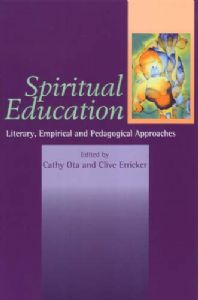![]()
Qi: "When it goes into man's chest, the man becomes a sage"

"What, if any, are the equivalent Chinese terms for 'spirit' and 'spirituality'? A brief consideration of this question provides some helpful background for understanding how the spiritual dimension of human life is conceptualized and expressed by the Chinese.
Etymologically, in Chinese 'it is probably qi that bears the closest resemblance to 'spirit' (Adler 1997). A simple comparison shows the basis for this judgment. According to Barnhart, 'The original English use of spirit are mainly derived from passages in the Vulgate, in which Latin spiritus is used to translate Greek pneuma and Herbrew ruah' (1999; 1047). Holl gives the original meaning of ruah as 'air in movement' (1998: 8), while Adler highlights 'the analogous words in Hebrew, classical Greek, and Sanskrit (ruach, pneuma, and prana) that similarly cover the range of meanings from wind and breath to spirit' (1997).
The original pictograph for the Chinese character qi consists of three roughly horizontal strokes representing parallel layers of clouds arising from the condensation of moisture. It thus denotes 'air, vapour, gas' (Lindqvist 1991: 172). Later, the pictograph for rice was inserted under the original strokes, probably to show the 'vapors' rising out of a saucepan of boiling grain (172). This composite pictograph became the present character for qi. Pas and Leung speculated that, in a natural extension of meaning, qi as vapours came to mean 'breath' (which in winter is very similar to steam). Because in many cultures 'breath' signifies 'life,' a further extension became understandable: 'vital spirit, vitality, vital breath, life energy, vital force' (1998:78). They stress the parallels qi has in other traditions, particularly regarding the fact that the same vital principle or energy that qi represents is supposed to course through both the cosmos and individual beings, quoting Mair's judgment that 'The same concept exists in the Indian tradition as prana, in the Greek tradition as pneuma, in the Latin tradition as spiritus, and in the Hebrew tradition as ruah' (Mair, quoted in Pas and Leung 1998:78).
Qi is a central term in both Daoism and Confucianism, the two dominant Chinese intellectual traditions influencing all aspects of life, from health to medicine, martial arts, fengshui (geomancy), to literature and various fine arts. A multiplicity of terms have been used for translating qi into English, including 'ether, elan vitale or vital force, humour, breath or psychosomatic force' (Lai 2001:446), but often it is simply left untranslated. Interestingly, qi is seldom translated as spirit, suggesting that, despite the commonalities, there are also important differences between the two.
In its most generalized sense, qi denotes 'the primal stuff out of which everything else in the universe condenses' (Van Norden 1996: 227). Its all-encompassing nature is exemplified by the following extracts from the ancient classis Guanzi:
'the qi of all things changes and thus becomes life'; 'when qi goes to the ground, grain grows; when it goes into the heavens, there emerge constellations; when it floats in the air, it becomes ghosts and spirits; when it goes into man's chest, the man becomes a sage,' and 'therefore when there is qi, there is life; when there is no qi, there is death.' (quoted in Tang, 1991:21)"
Cathy Ota, Clive Erricker, Spiritual Education
Sussex Academic Press, pp. 154-55
Disclaimer: Our material may be copied, printed and distributed by referring to this site. This site also contains copyrighted material the use of which has not always been specifically authorized by the copyright owner. We are making such material available to our readers under the education and research provisions of "fair use" in an effort to advance freedom of inquiry for a better understanding of religious, spiritual and inter-faith issues. The material on this site is distributed without profit. If you wish to use copyrighted material for purposes other than “fair use” you must request permission from the copyright owner.